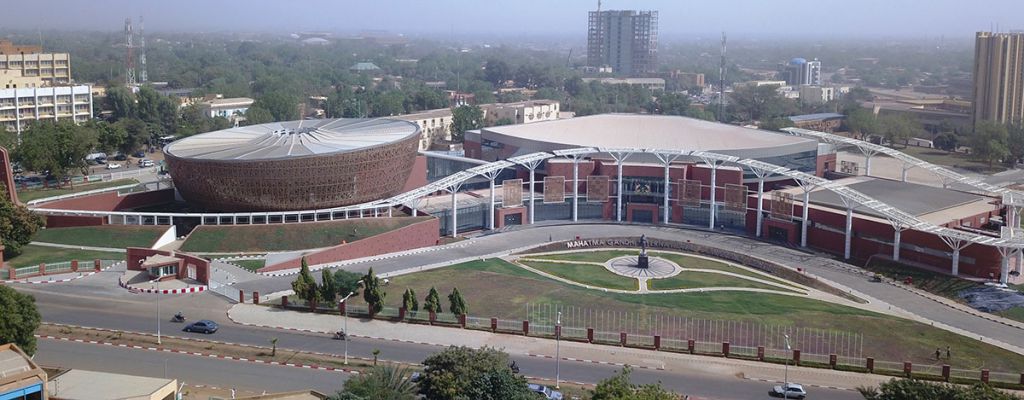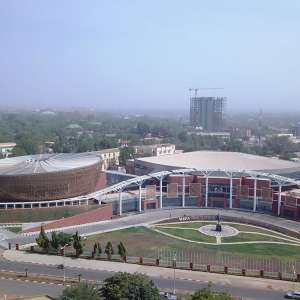Pan-African colloquium on debt recorvery and enforcement measures in Africa, on 10 and 11 June 2021 in Niamey (NIGER)
- 09/06/2021
- ERSUMA-OHADA
- 9660
- 1 commentaire
- 🇳🇪 Niger
The African Union of Judicial Officers and Bailiffs (UAHJ) and the National Chamber of Judicial Officers/bailiffs of Niger (CNHJN) which is the judicial officers of Niger's organization, are organising in partnership with the International Union of Judicial Officers (UIHJ) and the High Regional School of Magistracy (ERSUMA), a pan-African colloquium on the theme “Debt recorvery and enforcement measures in Africa: State of play and future prospects” on 10 and 11 June 2021 at the Mahatma Gandhi Centre in Niamey (Niger).
Overview
Compliance with voluntary commitment and enforceable decision is a factor of confidence-building, social peace, partnerships'development and growth of economic activity. Debt recovery and enforcement measures are the yardstick for the effectiveness of justice and the backbone of legal proceedings. The system put in place for their effectiveness plays a prominent role in the economic and social development strategies of the African continent.
Debt recovery and enforcement measures' decisive role is unanimously recognised. Yet, the challenges in debt recovery and enforcement of court decisions and other enforcement orders in Africa appears as the main obstacle to the continent's development, in that only a reliable justice system that guarantees the interests of litigants can give confidence to investors. Length of legal proceedings is criticized, the recovery of debts is threatened by various pressures, and numerous legal, political, sociological and even economic obstacles jeoperperdize forced execution. These burdens cast doubt on the African judicial system and investors just use it as an excuse, fearing to embark on a path with no certain outcome. The Doing Business reports, although criticised, speak volumes about the state of compliance and its impacts on business climate.
The establishment of the Organisation for the Harmonisation of Business Law in Africa (OHADA) in 1993 helped to overcome the obsolescence ( the main problem with most African laws ) of existing legislation. It untangled enforcement procedures through the Uniform Act organizing simplified recovery procedures and enforcement measures dated 10 April 1998. However, this community legislation, simple, modern and adapted to the economic situation of the seventeen (17) Member States, is today at the top of the jurisprudential production of the Common Court of Justice and Arbitration (CCJA). This means that debt recovery and forced execution constitute the Gordian knot of business. Similar concerns are noted in other African sub-regional areas, notably the countries of the Arab Maghreb, South Africa, Southern Africa, East Africa and the Indian Ocean, all of which are still marked by a diversity of legal systems.
Nowadays, the developement of e-commerce, the development of dematerialisation, the considerable progress of blokchain, the difficulties relating to circulation of public documents or the serious problem of recovery and forced execution in the midst of the COVID-19 pandemic crisis make the situation become more complex. The establishment of the African Continental Free Trade Area (AfCFTA), accentuates this complexity since it raises the problem of recorvery and enforcement procedures. Indeed, this new creation of the African Union, which was planned to enter into force on 1st July 2020, but officially took place on 1 January 2021, calls for reflection on the adaptation, extension, transposition or even transformation of our debt collection and enforcement systems. Several other questions of great importance may arise from this:
- What is the best system currently in force or would there be homogeneity of objectives, consistency of means, methods and experience, and equality of results?
- How will the cross-border enforcement of court decisions and enforcement orders be carried out? Should we stay with the same exequatur format or should we consider a special system to facilitate the circulation of public documents?
- How do we see the professional collaboration between judicial officers?
The judicial officers are committed to the improvement of the system. That's why they are leading reflection through the evaluation of the African systems of debt recovery and forced execution and the proposition of ways of improvement and reform of the African systems of debt recovery and forced execution.
Participation in the quolloquium is free of charge.
The entire event will be broadcast live on Zoom. To participate, click on the link below:
https://ohada-org.zoom.us/webinar/register/WN_VTpfX_AERY--dhiw-LzVuQ
Download the programme of the conference by clicking on the link below:
https://www.ohada.org/wp-content/uploads/2021/04/Programme-Colloque-Niamey-10_11-juin-2021_EN.pdf
For further information please contact:
- UAHJ: info@uahj.org; alain4ngongang@gmail.com
- CNHJN: aboubacarchalare@gmail.com
How to attend the event:
For physical attendance, interested persons have to travel to Mahatma Gandhi Centre in Niamey (Niger)
To participate via video conference from a PC, Mac, iPad, iPhone or Android device
- Have a computer/tablet computer/smartphone with speaker and microphone;
- Have a good internet connection of at least 4G reliable for good listening quality;
In case of difficulties, click on the link below to access the technical guide for connecting:
https://www.ohada.org/wp-content/uploads/2020/10/Guide_connexion_Matinee_ERSUMA_Ver002.pdf
To reach the technical support by email/phone or WhatsApp in case of participation by videoconference, please write to:
Mr Kodjo Patrice TOSSAVI
Email: tossavi.ersuma@ohada.org
Tel.: +229 97 44 53 55



14/07/2021 08h58 FAHAD MOHAMED
Je suis motivé de ses informations mais on a besoin des nouvels réformes de recouvrement en pdf merci de votre comprehension